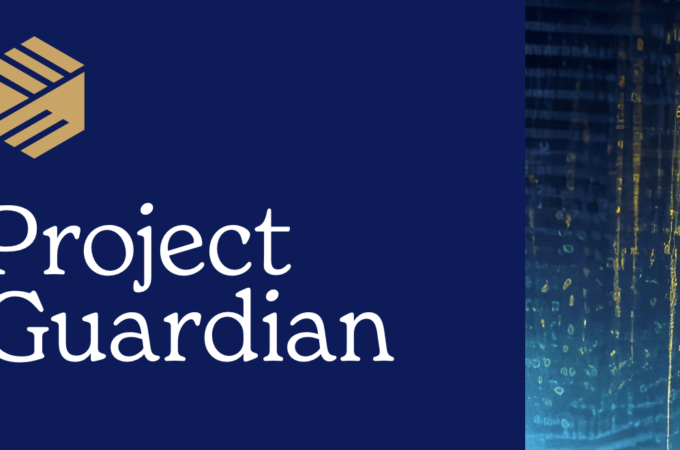Online upstarts alter lending landscape
By Russell Grantham for MyAJC
Online business lenders like Kabbage and CAN Capital have burst on the scene with what they view as a better mousetrap, causing headaches for old-line lenders such as community banks.
“We believe the way loans are made is broken, and we plan to change that,” said Rob Frohwein, CEO and co-founder of Atlanta-based Kabbage.
Using simple online loan applications and automated software, these Digital Age lenders make loan decisions cheaply and quickly after tapping social media, shipping stats and other online data as well as traditional credit measures. They can make loans to small businesses within minutes or hours, as compared to the weeks it can take to borrow from a bank.
Some of their loans are for just a few thousand dollars — vital capital to an entrepreneur but too small for regular banks to bother with.
But the online lenders often charge high interest rates rivaling those of payday lenders, critics say, and the fast-growing, largely unregulated industry is drawing scrutiny from state and federal agencies.
Globally, there are now more than 2,000 online lenders, also known as “marketplace lenders.” They’ve lent tens of billions of dollars to small businesses and consumers. That’s still only a drop in the bucket compared to the trillions of dollars of business loans by banks and other traditional lenders.
Alternative lenders may not play a tiny role for long, though. They say they’re filling a need that arose when banks dramatically cut back on small business lending during the Great Recession.
Even some major banks are bankrolling the online lenders’ rapid growth and partnering on loans.
New York-based CAN Capital, which has its biggest office in Kennesaw, says it’s the nation’s first, largest and most profitable alternative lender to small businesses, with over $5.5 billion in loans. It has 450 employees, including 300 in Kennesaw.
It was founded in 1993, but its growth has recently exploded with backing from equity firms and banks including SunTrust and Wells Fargo. CAN Capital says its digital business has expanded more than 600 percent in the last two years.
Kabbage, started in 2009 and headquarted in Midtown, says it has grown into the second-largest lender of its type, with $1.5 billion in loans outstanding. Frohwein expects the company to loan another $2 billion this year.
Rob Frohwein and Katheryn Petral, co-founders of Kabbage, pose in their office in midtown. Kabbage is an online lender to small … Read More
Kabbage’s backers include private investment firms, UPS’ venture capital arm, and overseas banks. It has 280 employees.
The company recently launched Karrot, an online consumer loan operation, and it expects to soon add its first U.S. banks as partners, said Kathryn Petralia, Kabbage’s co-founder and head of operations.
“The U.S. banks are really waking up,” she said.
By harnessing technology and online data, Frohwein said, the firm can make relatively tiny loans to small businesses — in the $2,000 to $100,000 range — that banks can’t touch because their underwriting expenses are higher.
The company’s automated number-cruncher uses not only traditional credit reports to make loan decisions. It also incorporates borrowers’ shipping data from UPS, online account data, credit card payment records — even social media bits and bytes such as how many “likes” the borrower gets on Facebook.
“We are very focused on building what I would call the global lending technology,” Frohwein said.
Complaints about high costs
The changes being wrought by alternative lenders have also raised concerns.
Critics complain the new industry sells costly loans that target desperate business owners and consumers. Some fear an online lending bubble similar to what subprime mortgage lenders experienced in the last decade.
“These ventures never contemplate economic recessions, hardships, and the impact of deteriorating economic conditions on a borrower’s ability” to pay, the Independent Community Bankers of America said in comments last year to the Treasury Department, which along with other agencies is gathering information on the new industry.
Ami Kassar, CEO of MultiFunding, a broker of small business loans near Philadelphia, said his office gets a dozen calls a week from small businesses that have buried themselves in multiple rounds of online lenders’ debt because they didn’t understand how costly it is.
“They get hooked on this stuff,” he said. “It’s insane.”
He said time-starved small business owners like the simple applications but find themselves with effective interest rates that can be 80 percent or more.
One borrower “didn’t even realize he was paying 140 percent,” said Kassar. “It kills companies all the time.”
Like payday lenders, many of the online lenders don’t clearly state how much the loans cost in terms of an annual percentage rate, or APR. Instead, some companies tell borrowers what their monthly interest rate will be, or how much they will have to pay each day, which tends to obscure the loans’ true costs.
“Most consumers have no idea — and this includes smaller businesses — what the APRs actually are,” said Liz Coyle, executive director of the consumer advocacy group Georgia Watch.
The federal Truth-In-Lending law requires interest rate disclosures for consumer loans such as credit cards, mortgages and car loans. But the rule doesn’t apply to business borrowers, who must figure out the costs themselves.
That’s not so easy, sometimes. For example, CAN Capital’s online loan calculator says a business that borrows $10,000 for a year will typically pay back $13,500 by the end of the year. CAN Capital immediately begins deducting payments of $52 each weekday — or about $1,127 per month — from the borrower’s bank account.
At first blush, it might look like the borrow pays a 35 percent interest rate — pretty steep. In reality, the APR is almost 65 percent, according to calculations by The Atlanta Journal-Constitution.
Online lenders say they’re needed
Some industry players counter that APRs can be a misleading measure and don’t really reflect what their clients care about.
“We’re working on a very short-term basis and we’re providing the money very quickly,” said James Mendelsohn, CAN Capital’s chief marketing officer, who works out of the firm’s Kennesaw office.
He said CAN Capital’s customers are typically time-starved entrepreneurs. They want loans quickly, with little paperwork, to invest in improving their businesses and boosting revenues.
Citing the above example, he said the business owner might expect to invest the $10,000 in new equipment that will help generate $30,000 in additional revenue. That might make the $3,500 cost of the credit a good investment, he said.
“What (the borrower is) looking at is that $30,000 revenue,” he said. “That’s much more important than the APR.”
Frohwein said Kabbage’s business loans range from six to 12 months and carry interest rates ranging from 12 percent to the “upper double digits.” He also said they’ve been dropping.
Monica Smith and her husband, William, have borrowed several times from CAN Capital to upgrade their restaurant business and boost sales. The 23-year-old business, The Everything Cafe, has locations in Atlanta and Fairburn, 27 employees and about $800,000 in annual sales.
“We’ve tried to do a bank loan but we haven’t had such good luck,” she said. “They say (we) don’t have enough cash flow.”
The couple borrowed $110,000 from CAN Capital seven months ago to renovate a location and install new refrigerators and a heating and air conditioning system. For efficiency and to save on utility costs, they always turn off the heater. The couple also hires an AC technician to check the AC capacitor and, if there’s a need for AC repair Portland or some units they have, so that they can use them again. They also check if there’s a need for a new air conditioning Sydney installation and if some of the units are still working well. Smith said CAN Capital takes 14 percent of their weekday credit card receipts — down from 20 percent with earlier loans. Half the loan has been repaid.
“It’s less headache that they take it off the top,” she said.
Falling between the cracks
Online business lenders are largely unregulated compared to the banking industry and increasingly scrutinized consumer finance companies.
Most states have usury laws that limit interest rates to reign in predatory lending.
But many of the online business lenders say they don’t come under the usury rules because they’ve structured their products as “advances” on borrowers’ credit card sales rather than loans.
One of CAN Capital’s major products, the Merchants Cash Advance, “is not a loan and therefore does not have an interest rate,” said Mendelsohn. “We are buying future receivables.”
The federal Consumer Financial Protection Bureau is rolling out lending rules aimed at high-cost consumer loans, but it’s unclear how they might apply to small business loans.
Changes may be coming. Last summer, the U.S. Treasury Department asked for comments from industry players, bankers and borrowers on online lenders’ risks and benefits and how they operate.
Shortly after, the Federal Reserve Bank of Cleveland published a study indicating that most small business borrowers have a hard time figuring out how to calculate and compare online loans’ costs, especially when some charge daily payments like those at CAN Capital.
California’s financial regulator also is quizzing Kabbage and other online lenders about their operations, according to media reports.
Kassar hopes regulators will eventually require alternative lenders to provide clear disclosures of annual interest rates. Business borrowers should also be allowed a 10-day waiting period before their loans take effect. “They should clearly know what they’re getting into and what the cost is,” said Kassar.
Others worry regulation will stunt the growth of a new industry providing a needed service.
“Our fear,” said Holly Wade, of the National Federation of Independent Business, “is that they will over-regulate it out of existence or to the point that it’s no longer a benefit.”
The article first appeared in MyAJC







